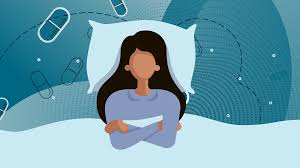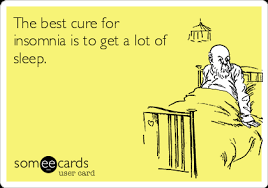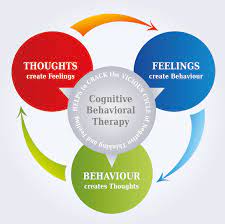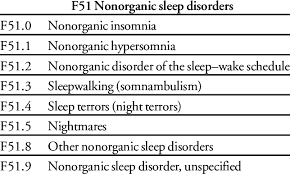Effective Ways to Treat Insomnia
Insomnia is a common sleep disorder that can significantly impact your quality of life. If you struggle with falling asleep or staying asleep, there are several strategies you can try to improve your sleep patterns and combat insomnia. Here are some effective ways to treat insomnia:
Establish a Consistent Sleep Routine
Go to bed and wake up at the same time every day, even on weekends. This helps regulate your body’s internal clock and can improve the quality of your sleep over time.
Create a Relaxing Bedtime Routine
Engage in calming activities before bed, such as reading a book, taking a warm bath, or practicing relaxation techniques like deep breathing or meditation. Avoid stimulating activities like watching TV or using electronic devices close to bedtime.
Make Your Bedroom Sleep-Friendly
Create a comfortable sleep environment by keeping your bedroom cool, dark, and quiet. Invest in a supportive mattress and pillows, and consider using white noise machines or earplugs if noise is a concern.
Limit Caffeine and Alcohol Intake
Avoid consuming caffeine in the afternoon and evening, as it can interfere with your ability to fall asleep. Similarly, limit alcohol intake close to bedtime, as it can disrupt the quality of your sleep.
Stay Active During the Day
Regular physical activity can promote better sleep quality. Aim for at least 30 minutes of exercise most days of the week, but avoid vigorous exercise close to bedtime.
Manage Stress and Anxiety
Practice stress-reducing techniques such as mindfulness meditation, yoga, or progressive muscle relaxation to help calm your mind before bed. Consider talking to a therapist if stress or anxiety is impacting your ability to sleep.
Consider Cognitive Behavioral Therapy for Insomnia (CBT-I)
CBT-I is a structured program that helps identify and change negative thoughts and behaviors that contribute to insomnia. It has been shown to be highly effective in treating chronic insomnia.
If you continue to experience persistent insomnia despite trying these strategies, consult with a healthcare provider or sleep specialist for further evaluation and treatment options.
8 Effective Strategies to Conquer Insomnia: From Natural Remedies to Lifestyle Adjustments
- What are the best ways to treat insomnia?
- How can I improve my sleep quality and overcome insomnia?
- Are there natural remedies for treating insomnia?
- What lifestyle changes can help with insomnia?
- Is medication necessary to treat insomnia, or are there other options?
- Can dietary changes or supplements help alleviate insomnia symptoms?
- What role does exercise play in managing insomnia?
- Are there specific relaxation techniques that are effective in treating insomnia?
What are the best ways to treat insomnia?
When seeking effective ways to treat insomnia, it is essential to focus on establishing a consistent sleep routine, creating a relaxing bedtime ritual, and optimizing your sleep environment. Engaging in calming activities before bed, such as reading or practicing relaxation techniques, can help signal to your body that it’s time to wind down. Additionally, limiting caffeine and alcohol intake, staying active during the day, managing stress and anxiety, and considering cognitive behavioral therapy for insomnia (CBT-I) are all valuable strategies to improve sleep quality and combat insomnia effectively. It is important to consult with a healthcare provider or sleep specialist for personalized guidance and treatment options tailored to your specific needs.
How can I improve my sleep quality and overcome insomnia?
Improving sleep quality and overcoming insomnia often requires a combination of lifestyle changes, bedtime routines, and relaxation techniques. Establishing a consistent sleep schedule, creating a relaxing bedtime routine, and optimizing your sleep environment can all contribute to better sleep quality. Additionally, limiting caffeine and alcohol intake, staying physically active during the day, managing stress and anxiety effectively, and considering therapies like cognitive behavioral therapy for insomnia (CBT-I) can help address underlying issues that may be contributing to your sleep difficulties. It’s important to work with a healthcare provider or sleep specialist to develop a personalized treatment plan that addresses your specific needs and helps you achieve restful and rejuvenating sleep.
Are there natural remedies for treating insomnia?
There are several natural remedies that can be effective in treating insomnia. Some common approaches include herbal supplements like valerian root, chamomile tea, or melatonin, which can help promote relaxation and improve sleep quality. Additionally, practicing relaxation techniques such as meditation, deep breathing exercises, or progressive muscle relaxation can help calm the mind and body before bedtime. Creating a soothing bedtime routine, optimizing your sleep environment, and maintaining a consistent sleep schedule are also important natural strategies for managing insomnia. It’s important to consult with a healthcare provider before trying any new natural remedies to ensure they are safe and appropriate for your individual needs.
What lifestyle changes can help with insomnia?
Making lifestyle changes can be instrumental in managing insomnia. Simple adjustments to daily habits can have a significant impact on improving sleep quality. Establishing a consistent sleep schedule, engaging in relaxing bedtime routines, creating a sleep-friendly environment, limiting caffeine and alcohol intake, staying physically active during the day, managing stress and anxiety effectively, and considering therapies like Cognitive Behavioral Therapy for Insomnia (CBT-I) are all lifestyle changes that can help alleviate insomnia symptoms. By incorporating these strategies into your daily routine, you can promote better sleep patterns and enhance your overall well-being.
Is medication necessary to treat insomnia, or are there other options?
When addressing the question of whether medication is necessary to treat insomnia, it’s important to consider that there are various options available beyond pharmaceutical intervention. While medication can be effective for some individuals with severe or chronic insomnia, it is not always the first line of treatment. Non-pharmacological approaches such as establishing a consistent sleep routine, creating a relaxing bedtime routine, making the bedroom sleep-friendly, limiting caffeine and alcohol intake, staying active during the day, managing stress and anxiety, and considering cognitive behavioral therapy for insomnia (CBT-I) are all viable alternatives that can help improve sleep quality without relying on medication. Consulting with a healthcare provider or sleep specialist can help determine the most appropriate treatment plan based on individual needs and circumstances.
Can dietary changes or supplements help alleviate insomnia symptoms?
Dietary changes and supplements can play a role in alleviating insomnia symptoms for some individuals. Certain foods and nutrients have been linked to promoting better sleep, such as those rich in melatonin (like cherries), magnesium (found in nuts and leafy greens), and tryptophan (present in turkey and dairy products). Additionally, herbal supplements like valerian root, chamomile, and lavender may have calming effects that aid in relaxation before bedtime. It’s important to consult with a healthcare provider before making significant dietary changes or starting any supplements to ensure they are safe and appropriate for your individual needs.
What role does exercise play in managing insomnia?
Regular exercise plays a crucial role in managing insomnia by promoting better sleep quality and overall sleep patterns. Engaging in physical activity during the day can help reduce stress and anxiety, which are common contributors to sleep disturbances. Exercise also helps regulate the body’s internal clock, known as the circadian rhythm, which can improve the ability to fall asleep and stay asleep. However, it is important to time your exercise appropriately, avoiding vigorous activity close to bedtime as it may have a stimulating effect that interferes with sleep. Incorporating regular exercise into your routine can be an effective non-pharmacological approach to managing insomnia and improving your overall sleep health.
Are there specific relaxation techniques that are effective in treating insomnia?
Many individuals find that specific relaxation techniques can be highly effective in treating insomnia. Techniques such as deep breathing exercises, progressive muscle relaxation, guided imagery, and mindfulness meditation have been shown to help calm the mind and body, making it easier to fall asleep and stay asleep. By incorporating these relaxation practices into a bedtime routine, individuals can reduce stress and anxiety levels, which are common contributors to sleep disturbances. Consistency in practicing these techniques can lead to improved sleep quality and overall well-being for those struggling with insomnia.




